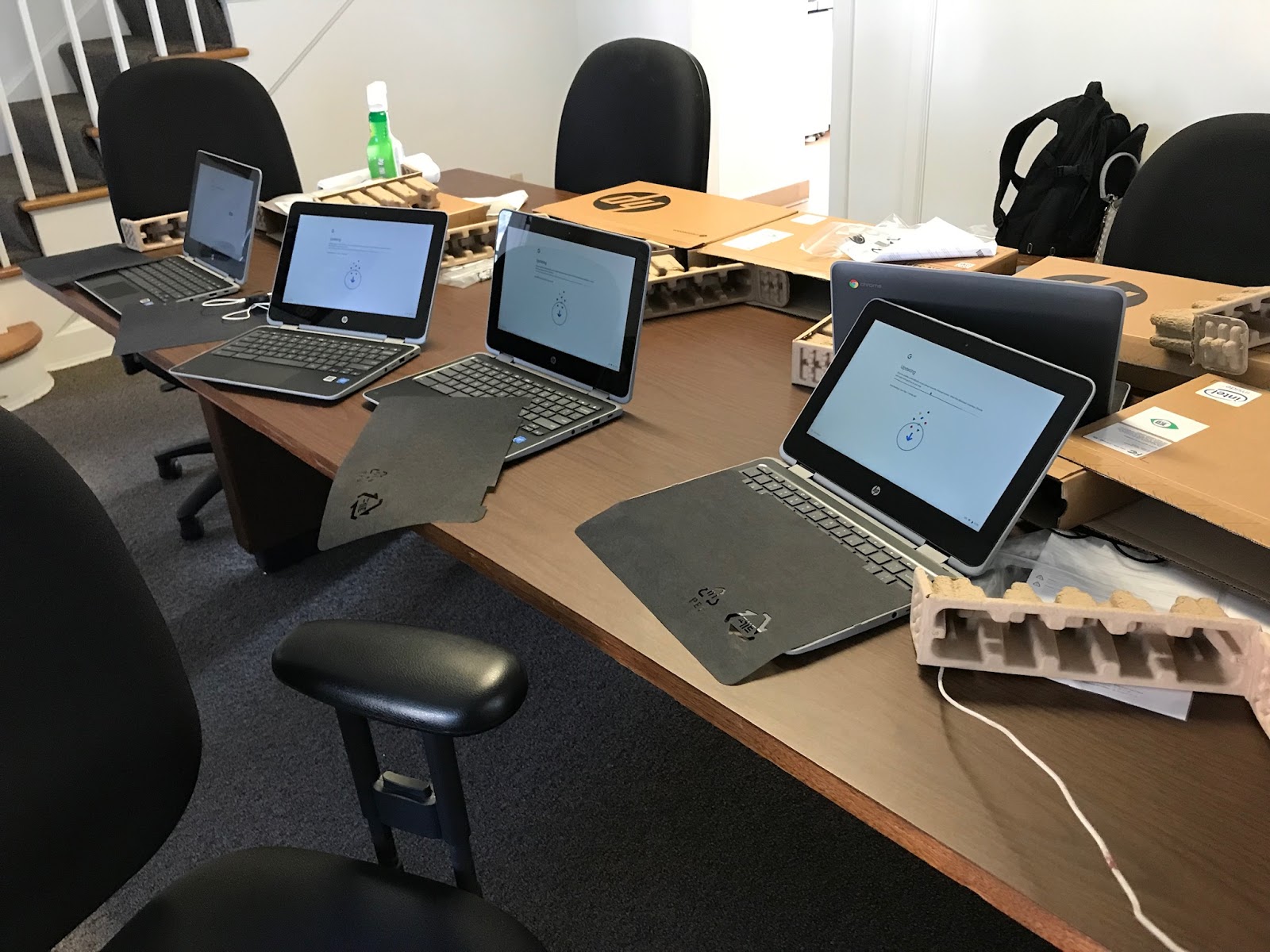In response to the pandemic, many providers are delivering services over phone or video conferencing, known as telehealth. Studies show that telehealth can be just as effective as in-person services, but the transition may leave behind those without phone or internet access.
To bridge the divide, CDHS is working with the Governor's Office of Information Technology to provide tablets and hotspot-enabled cell phones to organizations in need, including youth, veteran and behavioral health centers and the state mental health institutes in Fort Logan and Pueblo. To-date, the state has distributed about 170tablets that connect clients to care professionals and loved ones.
Tablets like these Chromebooks allow clients to talk to clinicians, behavioral health professionals and loved ones over videochat.
"CDHS has been using Chromebooks in our Division of Youth Services facilities for a while now to help keep kids in contact with their families," said Sarah Nelson, the business technology director at CDHS. "When COVID-19 started to constrain the ability for in-person visits, we wanted to extend the program across CDHS."
Shelly Solopow, the tribal liaison for OBH, heard about the program and worked with OBH procurement administrator Jodie Cassin to secure 20 tablets and 10 smartphones for Denver Indian Health and Family Services (DIHFS). Cassin and Nelson, shielded with face masks and gloves, braved snowy conditions to drop the supplies off last week.
"Leadership took decisive action and recognized the immediate and crucial need of one of our service providers," said Cassin, noting the donation came together in just a few days.
Sopolow said technology support is especially important for organizations like DIHFS that serve vulnerable populations. "Some patients and clients that seek services struggle with everyday life needs and are not able to maintain ongoing and reliable phone or internet services," she said. "This makes the change to telehealth very troublesome. I was so glad that the OBH folks really stepped up."
Nelson said the donation program is gaining momentum and expanding beyond CDHS facilities. The team will soon distribute tablets to county jails so OBH staff can conduct competency evaluations virtually.
'I am pleased we have been able to share these resources widely to support telehealth and enable people to stay in touch with families and friends when we all need that the most," Nelson said.
Providers with urgent technology needs should contact their program manager for support options. To submit COVID-19 related questions or requests, providers may fill out this Google Form.
